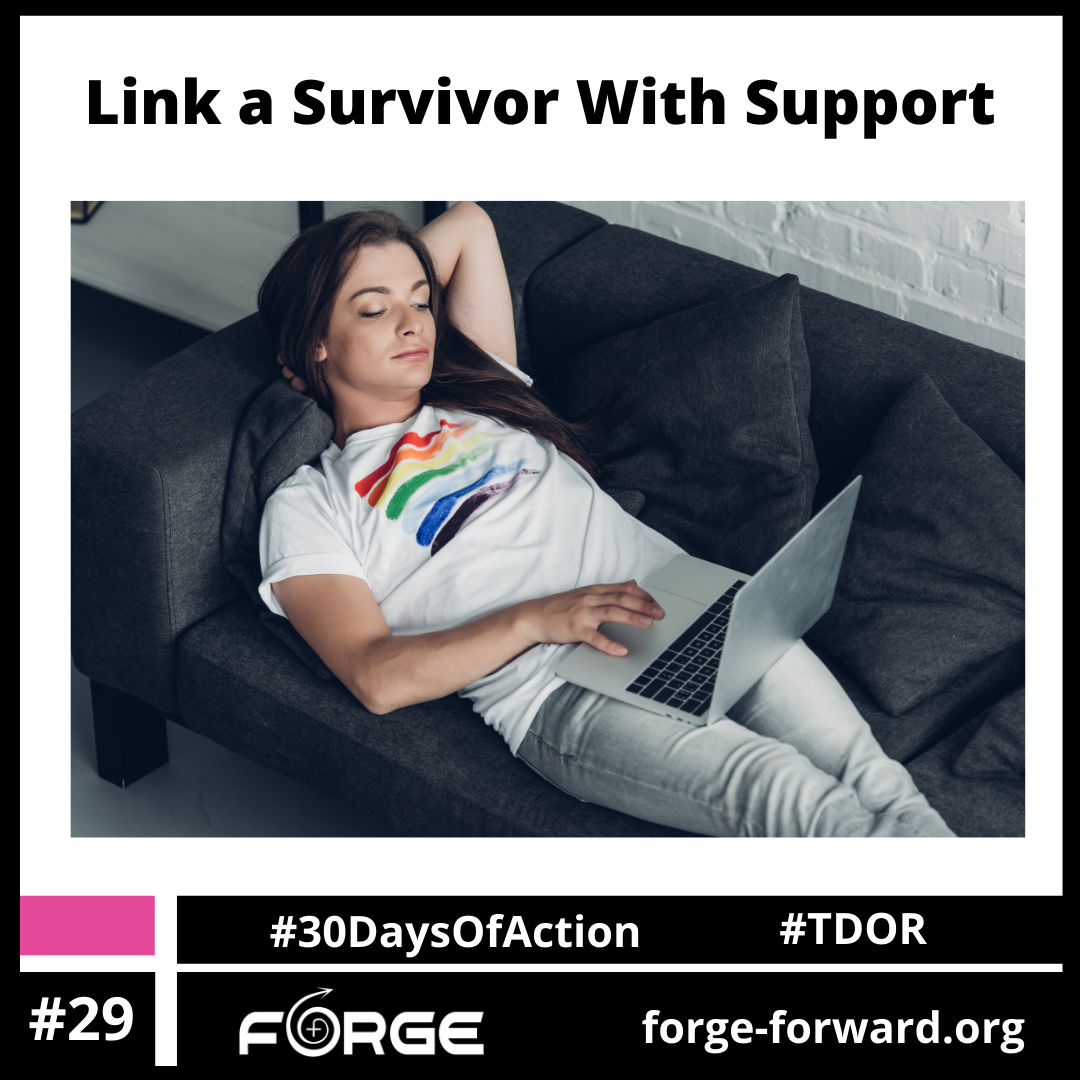The vast majority of trans community members has experienced trauma and violence. About half have survived sexual assault, and 50% have experienced intimate partner violence. 57% have experienced family rejection, and 53% have been verbally harassed or disrespected in a place of public accommodation. We could keep going with the statistics on other types of assaults, but the bottom line is this: most trans and non-binary people have experienced trauma and violence, often many times throughout their lifetime (also known as polyvictimization).
Some people sail through these storms, righting themselves soon after and cruising on. Others of us struggle more, and a few of us doubt our ability to recover at all. What this #DayOfAction calls for is connecting yourself or a(nother) trans survivor with the wealth of resources FORGE has created specifically for trans survivors.
A little bit of everything is available at our Trans-Survivors blog. Several recent additions have explored the unique combinations of being trans, a trauma survivor, and living in the midst of a pandemic. Some posts teach useful things such as art projects and making a happiness calendar. There are practical videos on topics such as setting up and maintaining medicine routines, grounding, and tapping. There are informative posts on topics such as trans masculine survivors of intimate partner violence and the neurobiology of trauma. Some survivors have discussed the helpful coping tools they use, such as dealing with traumatic anniversaries. And there are at least a dozen book reviews covering topics from military sexual violence to coping with racial trauma.
Also offering a little bit of everything is our YouTube channel. This resource has been vastly expanded this year. Some of the trauma-related videos we’ve recently added include creating your bubble, harm reduction, and healthy at every size. This is also where you can find our series of interviews with black trans leaders. Kylar Broadus talks about self-care, Ignacio Rivera gives advice for those struggling, and Carter Brown talks about hanging onto hope.
FORGE has four basic self-help guides that discuss trauma, how it uniquely affects transgender and non-binary people, and techniques for dealing with the aftermaths of trauma. The core guide is Transgender Sexual Violence Survivors: A Self-Help Guide to Healing and Understanding. Because so many trans and non-binary survivors look to partners and friends for help coping, we also created A Guide for Partners and Loved Ones of Transgender Sexual Violence Survivors, which contains much the same content as the self-help guide, plus material that addresses partners’ and friends’ needs. For those who are still facilitating trans support groups (and so, inevitably, are dealing with trauma survivors), we wrote A Guide for Facilitators of Transgender Community Groups: Supporting Sexual Violence Survivors. Finally, a comprehensive guide supports people who are looking at exploring or working with mental health providers: Let’s Talk About It! A Transgender Survivor’s Guide to Accessing Therapy.
Connecting to others is often extremely helpful to survivors. Trans survivors may be interested in signing up for one or more of FORGE’s social media platforms. Our national FORGE Facebook page is here, and our Wisconsin-based one is here. We also have a trans survivors Facebook page, and a closed discussion group, #TransToo, specifically for sexual assault survivors. You can also find us on Instagram and Twitter.

